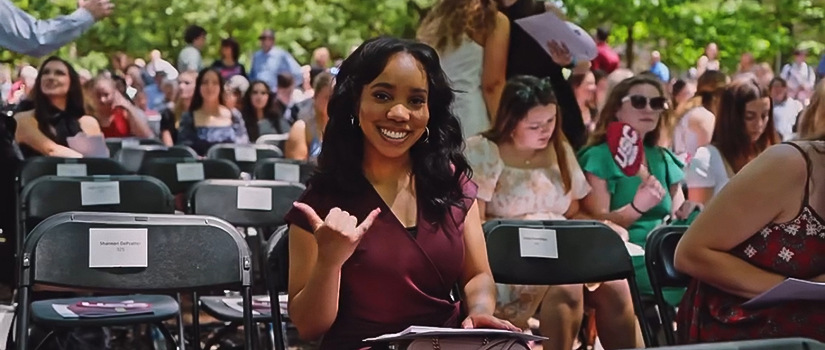Norah Dixon has long associated the University of South Carolina with a special event in December.
“State championship high school football games — we would come (to USC) every December because I went to Dutch Fork High School. My dad is a football coach, the director of strength & conditioning and a teacher,” the senior South Carolina Honors College student explains. “We grew up going to state championship games at Williams-Brice Stadium.”
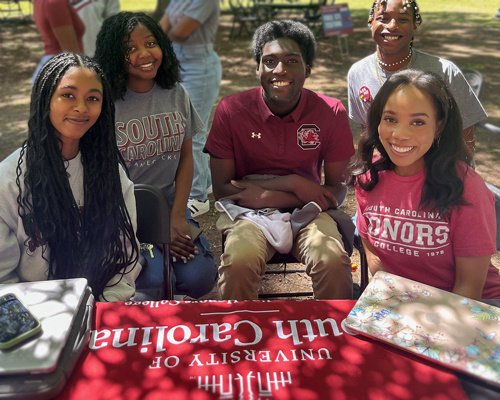
This December, however, Dixon won't be spectating — she'll be celebrating her graduation.
It’s a full-circle moment for the history major, reflective of her intellectual curiosities: Investigating the past and recognizing its significance to the present is Dixon’s specialty.
But she doesn’t stop there. Dixon’s post-graduation goal? To make a positive impact on future generations. She hopes to leverage her knowledge of history, as well as the hands-on experiences she gained at USC, to ensure that education is accessible to everyone.
Learning from the past
As a history major, Dixon is particularly interested in the Reconstruction and Civil Rights eras. She also minored in mass communications to investigate the intersection between history and journalism, which she was able to explore through an Honors course taught by professor Carolyn Click, Voting Rights and Civil Wrongs: Journalism in 1940s-Era South Carolina.
“It was just beautiful to learn about my state’s history and how it impacted the Civil Rights movement,” says Dixon. She appreciated the opportunity to engage with primary sources, such as reading through newspaper clippings and interviewing South Carolina residents who experienced that era. In this way, Dixon and her classmates were able uplift some voices from this part of history that had not yet been shared.
“We worked through archives, and it was interesting to see how we’re able to uncover history through journalism, and so I really like that,” says Dixon. “You can tell the stories of people whose voices do not often get told in history through journalism.”
The next fall, Dixon’s research interests would focus even closer to USC. In professor Christian Anderson’s Honors course, Legacies of USC: Exploring the Establishment and Evolution of S.C.’s Flagship University, Dixon researched Richard T. Greener, USC’s first African American professor. Upon learning that professor Anderson was conducting his own research on Greener, Dixon asked to be involved.
“After class one day, I was like, ‘If you are looking for an undergraduate student assistant, I would love to be that for you.’ And within the next class, he brought me a couple of Greener’s writings, like his written essays to transcribe,” Dixon reflects. “He got me started on my first research project, which connected me to presenting at my first research conference.”
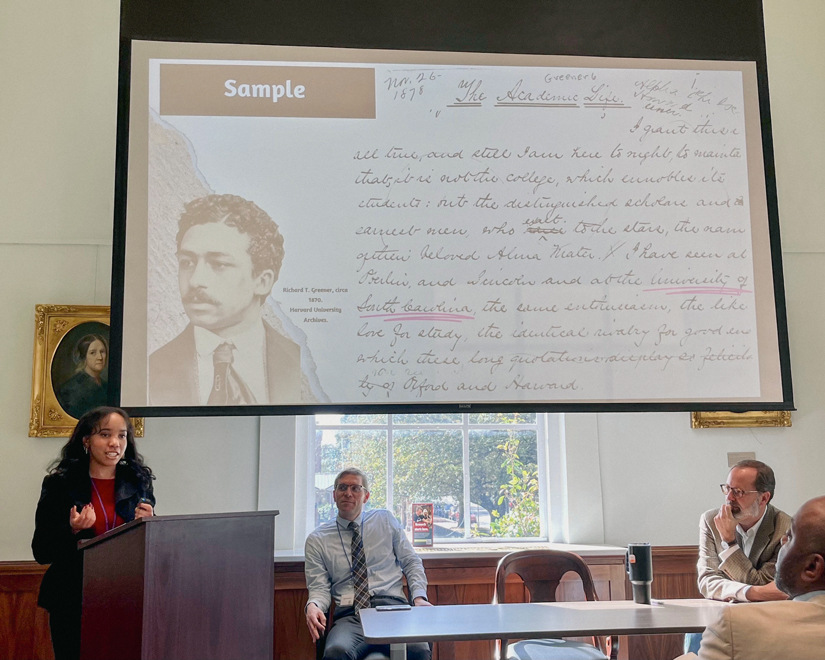
In her Honors courses, Dixon was able to illuminate ideas from the past in the present, creating public history displays and giving conference presentations. The ability, not just to study history, but to engage with it and share it, fueled her intellectual curiosity further.
“That aspect is how the Honors College...through the service-learning courses and through their research opportunities has been able to help me further explore my interest in that side of history, and I get hands-on experience being able to do that,” says Dixon.
Impacting the present
When she wasn’t busy studying USC’s past and communicating it to others, Dixon was active in her campus community. A member of the Black Honors Caucus since her first year in Honors, Dixon began her tenure as publicity chair her sophomore year. The Black Honors Caucus fosters community among Black students in the SCHC, and Dixon has enjoyed publicizing the group’s events and programs.
“It contributed to why I feel like the Honors College has such a community-oriented atmosphere and just has such a family-oriented vibe,” says Dixon. “I think the Black Honors Caucus, and the students who are in it, do so many amazing things. So that’s why I love working as a publicity chair, because I get to just highlight all the amazing things they’re already doing and just (make) it known to the community through our Instagram or through the Honors newsletters.”
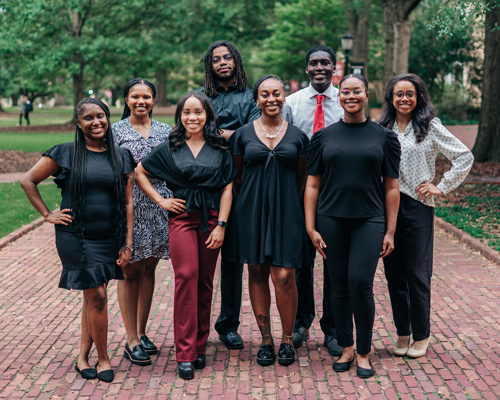
After gaining leadership experience through the BHC, Dixon founded the Scholar Recruitment Advisory Committee, a student group that works with USC admissions staff. Dixon was already working in USC’s admissions office and wanted to elevate her level of involvement.
Based on nominations from SCHC faculty and staff, Dixon formed a committee of ten Honors students from diverse backgrounds. Through a series of meetings, the students generated feedback for admissions about how to approach recruiting new generations of students for the Honors College and Top Scholar communities. Dixon cites her involvement with the Scholar Recruitment Advisory Committee as one of the most impactful experiences of her undergraduate career.
“I founded that because...I’m really interested and passionate about discovering ways to make higher education more accessible to everyone, regardless of their background,” says Dixon. “I knew when I started working in admissions that I wanted to do something that can tangibly advance that goal.”
Envisioning the future
Dixon’s list of accolades continues: she’s earned USC’s President’s and Outstanding Senior Awards, as well as the NAACP Creative Sole Scholarship. She will also serve as an SCHC Senior Marshal for the December Revocation ceremony. She has made the most of her USC experience, empowered by her intellectual curiosity, her leadership skills and her community.
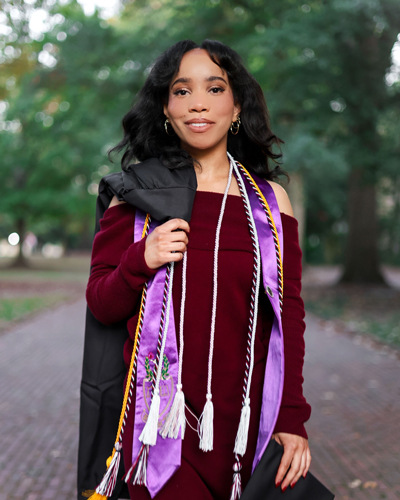
“The Honors College has allowed me to further my passion for serving my community through service-learning courses and then also develop my leadership skills through a lot of the beyond-the-classroom experiences,” Dixon reflects.
When she crosses the stage for her December graduation, however, she will not just be focused on the past. Dixon plans to attend USC’s Joseph F. Rice School of Law and was recently awarded the Carolina Law Research Scholarship. She aspires to continue serving her community as an attorney.
“What I hope to focus on in my legal career is education law,” says Dixon. “My dad is a public high school teacher, so he’s a public educator. My mom is a social worker. So just seeing how they impacted children, and how education impacts children, and how they use their talents and their interests to better the people in their community...I know I want to be able to do that.”
